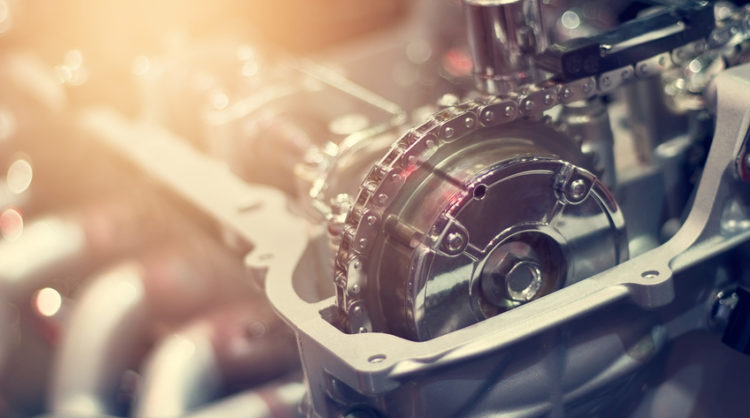Crucial Factors To Consider for Making Sure Top Quality and Longevity in Utilized Engines
When considering the purchase of a used engine, ensuring its quality and durability needs a complex approach. Maintenance background is a critical element, as it offers understanding right into the engine's past care and possible future integrity. Efficiency screening is likewise vital, offering a picture of the engine's functional efficiency.
Engine History Examination
In the world of made use of engines, a thorough engine history examination is paramount to guaranteeing high quality and integrity. Understanding an engine's past can supply essential insights into its efficiency capacities and potential future durability.
Engines that have actually gone through significant repair work might have underlying concerns that might resurface. Checking out the engine's mileage can serve as a sign of wear and tear. An engine made use of mainly for long-distance freeway driving may be in better condition than one subjected to constant stop-and-go city web traffic.
Essentially, an exhaustive investigation right into an engine's background is important for making enlightened purchasing choices. used engines for sale.
Comprehensive Examination Guide
While understanding an engine's history provides valuable context, a detailed examination is the next action to guarantee its existing problem lines up with historic data. The assessment needs to begin with a visual evaluation, examining for indications of leaks, rust, and unusual wear. Examine the exterior for oil discolorations or coolant marks, which may indicate underlying concerns.
Next, evaluate the engine's mounting system for any loosened bolts or irregularities that might impact efficiency. Pay attention to the problem of belts and hose pipes, as these parts are critical for optimum engine functionality. Analyze for cracks, fraying, or any kind of indications of damage.

Identifying Wear and Tear
Identifying indicators of wear and tear is important for analyzing a used engine's longevity and dependability. It entails a precise exam of various engine elements to determine their current state and possible future performance.
An additional vital element is evaluating the engine's seals and gaskets. These elements are important for keeping correct stress and protecting against liquid leakages. Evidence of oil leaks or used gaskets frequently recommends degeneration, potentially causing a lot more extreme concerns if not dealt with quickly. In addition, unusual sounds during engine operation, such as knocking or ticking noises, may show inner damage or excessive wear on relocating components like pistons or bearings.
The condition of belts and tubes is equally important, as they play an essential function in the engine's overall feature. Broken or frayed belts and breakable hoses are signs old that can cause engine failing if ignored. Lastly, taking a look at the oil problem and filter can offer insights into previous upkeep techniques, as dirty oil or stopped up filters suggest disregard and accelerated wear.
Efficiency Testing Basics
Examining the deterioration of engine components sets the phase for a comprehensive assessment through performance screening. Performance testing serves as a critical action in identifying the functional honesty of a made use of engine. By imitating real-world conditions, it evaluates the engine's ability to deliver power successfully and accurately. Trick metrics include horsepower, torque, gas effectiveness, and emissions degrees. This information offers important insights into the engine's existing performance and helps recognize possible problems that might not be immediately visible.
Utilizing dynamometers is a typical method in performance screening. These gadgets gauge the engine's output throughout numerous problems, offering a comprehensive profile of its capability. Furthermore, on-road screening matches dynamometer evaluations by observing engine habits under common driving circumstances, ensuring it satisfies the required standards for both safety and security and efficiency.
Advanced analysis tools further enhance the capacity to identify underlying problems. These devices analyze engine management systems, that site identifying mistakes in digital elements go to the website that can impact performance. Comprehensive screening not only verifies the engine's operational condition but also aids in projecting future upkeep demands. This guarantees the made use of engine can deliver trustworthy efficiency over a prolonged period, hence maximizing its worth and service life.
Upkeep and Care Tips
Correct maintenance and care are critical to extending the life expectancy of a used engine and guaranteeing its constant performance. Regular oil changes are critical; utilizing the maker's recommended oil type and grade can stop too much damage. Furthermore, oil filters should be changed simultaneously to preserve ideal lubrication and cleanliness within the engine.
Monitoring fluid levels, including coolant, transmission fluid, and brake fluid, is vital. Making certain these liquids are at ideal levels aids prevent getting too hot and other mechanical problems. Checking belts and pipes for indications of wear, such as splits or fraying, can avoid potential failings that might lead to expensive repair work.
Routine evaluation of the air filter is additionally essential, as a clean filter makes sure efficient air movement and burning, thereby enhancing engine performance. Stimulate plugs need to be examined and changed when needed to preserve reliable gas combustion and avoid engine misfires.
Finally, regular analysis checks making use of specialist tools can determine possible concerns before they become substantial issues. By adhering to these maintenance and care pointers, made use of engine owners can guarantee their engines stay trusted, effective, and efficient in carrying out more than read the article an extensive period.
Conclusion
